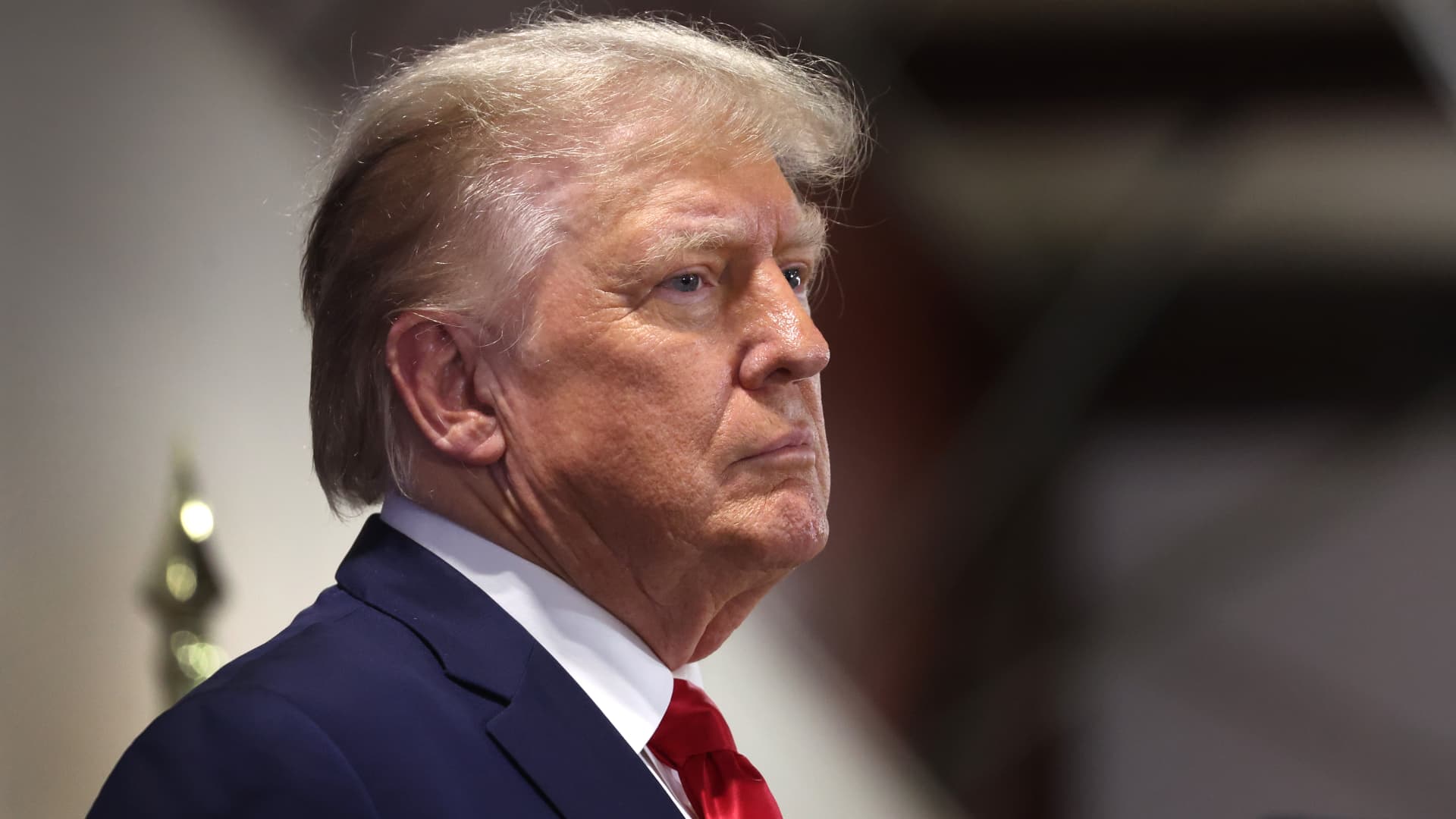
A judge on Tuesday ruled that former President Donald Trump and his company are liable for fraud in a lawsuit by the New York Attorney General’s Office.
Judge Arthur Engoron in his scathing decision cancelled the New York business certificates of Trump and the other defendants in the Manhattan Supreme Court lawsuit.
CNBC has asked a spokeswoman for Attorney General Letitia James if the ruling prohibits Trump and the other defendants from doing business in New York, as the wording of the decision implies.
Engoron, in granting partial summary judgment to James, found that Trump had made false and misleading valuations for multiple real estate assets in statements to insurers and banks over the course of years.
Because of those misstatements, Trump inflated his true net worth in annual financial statements by billions of dollars, according to the decision.
The judge ordered that within 10 days, the defendants must recommend no more than three potential independent receivers to manage the dissolution of the corporations which the judge has canceled business certificates for.
The defendants include Trump, his sons Donald Trump Jr. and Eric Trump, former Trump Organization chief financial officer Allen Weisselberg, company executive Jeff McConney, and corporate entities.
Engoron also ordered sanctions of $7,500 for each attorney who represented the Trump defendants for making frivolous and previously rejected arguments in court filings.
Engoron wrote that James’ office “has prevailed on liability on its first cause of action … as against all defendants.”
The judge added that if liability for fraud is established under New York law, that statute allows the attorney general to obtain an order enjoining defendants from continuing to do business or “any fraudulent or illegal acts.”
He noted that even after he appointed an independent financial monitor for the Trump Organization last year, “defendants have continued to disseminate false and misleading information while conducting business,” Engoron wrote.
“This ongoing flouting of this Court’s prior order, combined with the persistent nature of the false [statements of financial condition]year after year, have demonstrated the necessity of canceling the [defendants’s business] certificates … as the statute provides,” the judge wrote.
Engoron’s ruling, which also dismissed Trump’s request for a summary judgment in his favor, did not settle six other issues in dispute in the case. Those issues will be addressed at a trial due to begin on Monday.
James is seeking $250 million in damages in the case.
The 35-page ruling details how Trump fraudulently valued his Mar-a-Lago club in Palm Beach, Florida, Trump Park Avenue and 40 Wall Street in New York City, his Seven Springs property in Westchester County, New York, and his golf course in Aberdeen, Scotland.
“Time and time again, the Court is not comparing one appraisal to another; it is comparing an independent professional appraisal to a pie-in-the-sky dream of concocted potential,” Engoron wrote.
After noting that Trump submitted statements falsely claiming that the Trump Tower apartment in which he resided for decades was nearly three times its actual size, the judge wrote, “a discrepancy of this order of magnitude, by a real estate developer sizing up his own living space of decades, can only be considered fraud.”
“The documents here clearly contain fraudulent valuations that defendants used in business,” Engoron wrote.
“Defendants respond that: the documents do not say what they say; that there is no such thing as ‘objective’ value; and that, essentially, the Court should not believe its own lying eyes,” the judge noted.
Trump’s attorney Alina Habba did not immediately respond to a request for comment.
This is breaking news. Please check back for updates.
